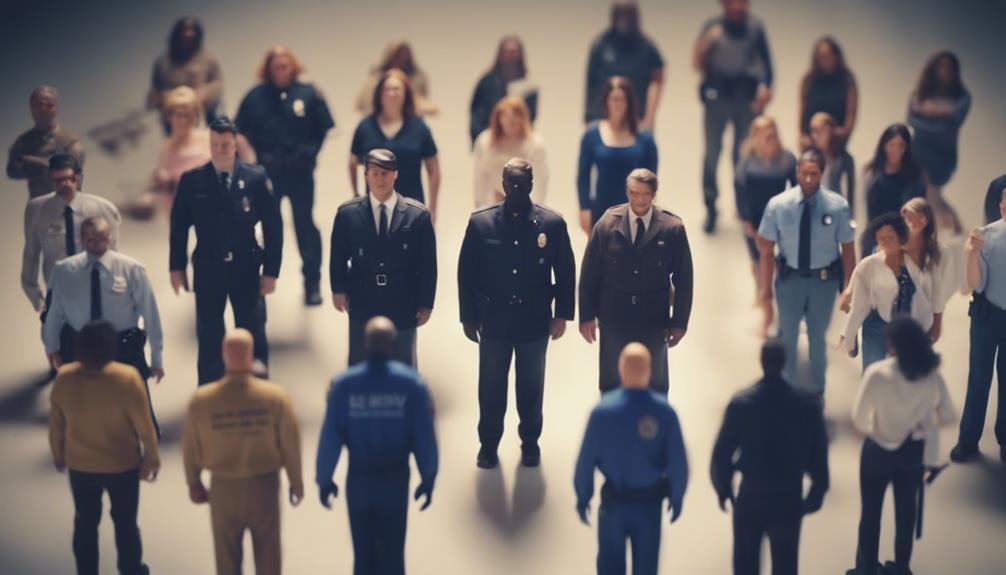If you’re experiencing domestic violence, consider these legal protections. Family Violence Protective Orders shield victims and restrict abusers with criminal consequences for violations. Sexual Assault Protective Orders prevent contact, mandate firearm surrender, and can result in criminal charges if breached. Other options, like restraining orders, cover abuse, stalking, and trafficking with serious legal repercussions for violators. Custody laws focus on the child’s well-being, and child support laws mandate financial assistance. Understanding these protections is essential for your safety and well-being.
Key Takeaways
- Family Violence Protective Orders shield victims, with severe penalties for violators.
- Sexual Assault Protective Orders prohibit contact and demand firearm surrender.
- Legal assistance essential for navigating protective orders and custody laws.
- Custody laws prioritize child’s well-being and ensure a safe environment.
- Non-payment of child support can lead to legal repercussions.
Family Violence Protective Orders
Family violence protective orders serve as indispensable legal instruments in Texas to shield domestic violence victims from further harm by placing restrictions on abusers’ behavior and contact. These orders are essential for ensuring the safety and well-being of victims by prohibiting abusers from contacting or approaching them, their children, residences, or workplaces.
Violating these orders can lead to severe criminal penalties, including fines and imprisonment, underscoring the importance of compliance. Victims in Texas can seek assistance from legal services and advocacy organizations to navigate the process of obtaining family violence protective orders effectively. These organizations provide valuable support and guidance, helping victims understand their rights and options under the law.
Family violence protective orders are vital tools that offer immediate protection and support to individuals experiencing domestic violence, empowering them to take legal action against their abusers and secure a safer environment for themselves and their families.
Sexual Assault Protective Orders
When seeking protection against further harm after a sexual assault in Texas, victims can obtain Sexual Assault Protective Orders to safeguard themselves. These orders, under Texas law, offer necessary protections by prohibiting contact, specifying no-go locations, and even mandating the surrender of firearms. It’s essential for victims of sexual assault to understand that violating such orders can lead to criminal charges and penalties. Seeking legal assistance is advisable to navigate the process and guarantee safety effectively.
Sexual Assault Protective Orders serve as indispensable safeguards for victims of sexual assault, providing them with the legal protections needed in such challenging circumstances. Understanding the significance of these orders and taking the necessary steps to obtain them can make a substantial difference in ensuring the well-being and security of individuals who’ve experienced sexual violence.
Other Legal Protection Options
Victims of domestic violence in Texas have access to a range of legal protection options beyond restraining orders. Protective orders in the state extend to cover a wide array of offenses such as sexual assault, abuse, stalking, or trafficking, providing thorough protection for individuals facing domestic violence situations. It’s essential to note that violating a restraining order can lead to severe legal consequences, underscoring the significance of adhering to court orders. Seeking legal assistance is vital in understanding the process of obtaining protective orders and navigating the complexities of family violence cases.
In Texas, custody laws prioritize the best interests of the child when determining parental rights, considering various factors to ensure a safe and stable environment. Additionally, child support laws mandate financial support for children, with calculations based on both parents’ income. Non-payment of child support can result in legal repercussions.
Understanding these legal avenues, including protective orders, custody laws, and child support laws, can empower domestic violence victims to seek the necessary legal protection and support to break free from abusive situations.
Frequently Asked Questions
What Are the Laws Against Domestic Violence in the Us?
Federal regulations, state provisions, and protection orders establish legal safeguards against domestic violence. Mandatory arrests, criminal charges, and civil lawsuits protect victims. Support services, counseling options, legal representation, and advocacy efforts enhance the safety and well-being of survivors.
What Are the Victim Rights in Texas?
You have the right to victim compensation, court orders, protective orders, legal advocacy, counseling services, law enforcement support, emergency shelters, safety planning, civil remedies, and legal representation in Texas to safeguard your safety and well-being.
What Are the Laws on Domestic Violence in Texas?
Domestic violence statistics show an urgent need for protective orders, counseling services, and emergency shelters. Law enforcement response is vital in enforcing criminal penalties. Support groups, legal advocacy, and child custody assistance offer essential aid.
What Is the VAWA Law in Texas?
In Texas, the VAWA law offers various benefits to domestic violence victims. You can access resources like protection orders, shelters, hotlines, and support groups. Meeting eligibility requirements allows you to apply for immigration relief and benefit from confidentiality protections.
Conclusion
In summary, with the legal protections available for domestic violence victims such as Family Violence Protective Orders and Sexual Assault Protective Orders, there are options to help guarantee safety and security.
By understanding these legal avenues and seeking help when needed, victims can take steps towards protecting themselves and their loved ones.
Remember, no one should have to endure abuse alone, and seeking legal protection is a vital step in breaking free from a cycle of violence.







